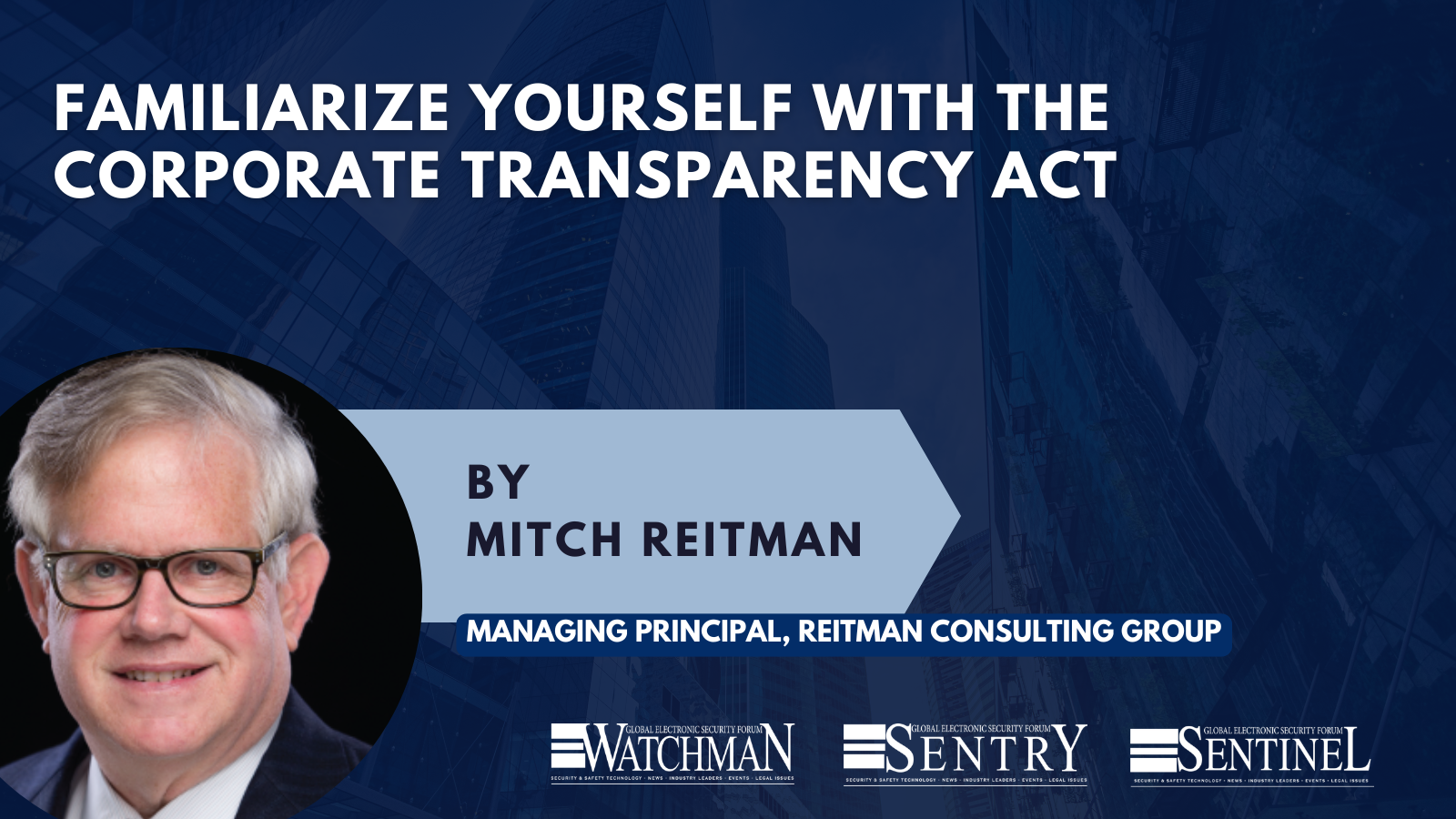
By: Mitch Reitman
On January 1 of this year, a new reporting requirement went into effect that requires millions of small businesses to file a Beneficial Ownership Information (BOI) Report with the U.S. Department of Treasury’s Financial Crimes Enforcement Network (FinCEN).
Every small business owner needs to know about this new reporting requirement as non-compliance can result in severe civil, and criminal, penalties. This article addresses some of the main questions small business owners have been asking about BOI reporting.
What is the purpose of the Corporate Transparency Act?
The CTA is mainly an anti-money laundering law with the intent of preventing criminals from concealing their ownership of corporations, LLCs, or similar entities in the United States to facilitate money laundering, financing of terrorism, tax fraud, and other illegal acts. Congress believes that federal legislation providing for the collection of beneficial ownership information is needed to protect national interests and better enable efforts to counter those illegal acts.
Who has to file a BOI report?
Every corporation, LLC, or other entity created by the filing of a document with a Secretary of State or similar office under the law of a state or Indian tribe is required to file a BOI report unless it qualifies for an exemption. Those entities created in the United States and not exempt, and therefore required to file a BOI report, are called “domestic reporting companies”.
What does a company have to file?
Each company has to file certain information about the business. All beneficial owners will have to report certain identifying information including date of birth, home address, passport, driver license, and other sensitive information.
The information can be disclosed to a limited group of requestors including (1) federal agencies engaged in national security, intelligence and law enforcement, (2) state law enforcement agencies with a court order, (3) the Treasury Department, (4) financial institutions with the company’s consent, (5) government regulators of financial institutions, and (6) certain foreign authorities requesting information through a U.S. agency.
When and how to file?
The initial report and all updates and corrections must be filed electronically with the Financial Crimes Enforcement Network, or FinCEN via their website, by January 1, 2025. If the entity is formed during the calendar year 2024, it has 90 days to file. If the entity is formed on or after January 1, 2025, it must file within 30 days of formation.
If there is any change in the information reported about the reporting company or its beneficial owners, the reporting company must file an updated report within 30 calendar days after the date on which the change occurs. Keep in mind that you will not be able to see previously reported information on the FinCen website so be sure to keep records of what you have filed.
It is estimated that it will take most companies 2.5 to 3 hours to fill supply the information and to upload the forms, if they get it right the first time. Companies who make mistakes will find their applications rejected and will have to resubmit their information within 30 days.
Can another firm file for me?
Just as with any other government requirement, third-party firms will offer to file the information for you. Remember that these firms may or not have the necessary skills to properly file on your behalf, and that you are still responsible for the information filed. The FinCen website does not allow you to save your input, so if you exit their web-portal you will lose all data which has been inputted into their filing portal.
This also means that if your input is rejected or if you need to update information, the process will need to be repeated from the beginning. With many companies waiting until the last minute to file, their web-portal could be overloaded and go down, also forcing you to start over again.
If you have questions and/or need assistance filing your CTA, we have developed a secure portal which you can access to help provide clarity regarding the requirements, upload your scanned documents, monitor your progress, submit your filing to FinCen, and view previously filed documents so that you can correct errors and make changes. Feel free to reach out to us at [email protected]
ABOUT THE AUTHOR:
For more than 25 years, Mitch Reitman has been actively involved in local, state and national security trade associations and has held leadership roles on boards with ESA and AIREF. An active member of several local and national associations, he serves on the board of Texas Burglar and Fire Alarm Association, Alarm Industry Research and Education Foundation, and several others. He has also worked with TBFAA and local associations to set up and administer a scholarship program for children of public safety officers. He was honored as TBFAA’s 2019 Person of the Year.
Source: snnonline.com
